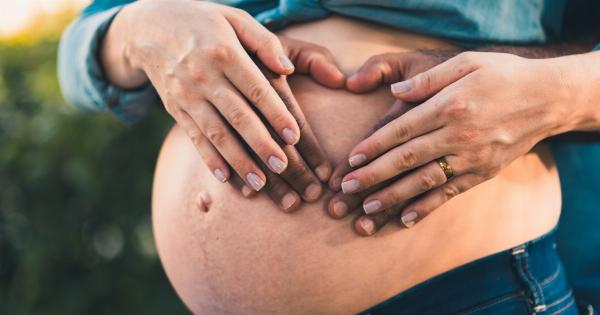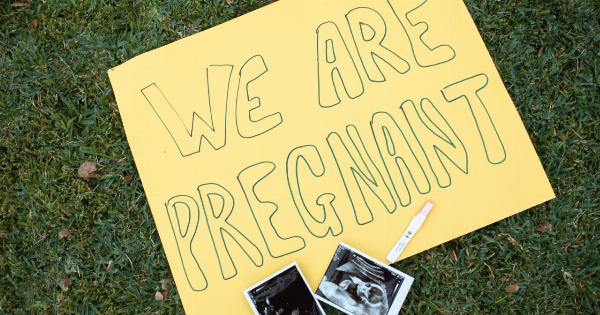If you suspect that you might be pregnant but haven’t missed a period yet, it’s important to know that a missed period is not the only indicator of pregnancy.
While a missed period is usually the most common and well-known sign, there are other early signs and symptoms of pregnancy that you can look out for. In this article, we will explore the various ways to tell if you’re pregnant, even if you haven’t missed a period.
1. Breast Changes
One of the earliest signs of pregnancy can be changes in your breasts. You may notice that your breasts feel tender, sensitive, or swollen. Your nipples might also become more prominent or darker in color.
These changes occur due to hormonal fluctuations in your body as it prepares for pregnancy.
2. Fatigue
Feeling more tired than usual could be a sign of early pregnancy. Increased levels of progesterone can make you feel exhausted, even in the early stages of pregnancy.
If you find yourself needing more rest or feeling unusually fatigued, it could be an indication that you’re pregnant.
3. Increased Urination
If you find that you’re suddenly making more trips to the bathroom, it could be a sign of pregnancy. This is caused by the increased blood flow to your kidneys, leading to increased urine production.
Additionally, your growing uterus exerts pressure on your bladder, making you feel the need to urinate more frequently.
4. Nausea and Morning Sickness
Nausea, often accompanied by morning sickness, is another common early sign of pregnancy. While commonly referred to as morning sickness, it can occur at any time of the day.
If you’re experiencing bouts of nausea or vomiting, it could indicate that you’re pregnant.
5. Changes in Appetite
Pregnancy can also cause changes in your appetite. You may find that you’re suddenly craving certain foods or that your favorite foods no longer appeal to you.
Some pregnant women experience an increased appetite, while others may have a decreased appetite or aversions to certain foods.
6. Bloating and Constipation
Hormonal changes during pregnancy can lead to bloating and constipation. If you’re feeling more bloated than usual or having difficulty passing stools, it could be a sign of pregnancy.
The increased levels of progesterone can slow down your digestive system, leading to these uncomfortable symptoms.
7. Mood Swings
Pregnancy hormones can also impact your mood, causing you to experience mood swings. You may find yourself feeling more emotional, irritable, or weepy.
These mood swings are a result of the hormonal changes happening in your body as it adjusts to the pregnancy.
8. Spotting or Light Bleeding
Some women experience implantation bleeding, which can be mistaken for a light period. Implantation bleeding occurs when the fertilized egg implants itself into the uterine lining.
This bleeding is usually lighter and shorter in duration compared to a regular period. If you notice spotting or light bleeding around the time your period is due, it could be a sign of pregnancy.
9. Changes in Cervical Mucus
Monitoring changes in cervical mucus can also provide clues about your pregnancy status. After conception, you might notice an increase in cervical mucus that is thicker and stickier than usual.
This change occurs due to the increased estrogen levels in your body during pregnancy.
10. Home Pregnancy Tests
While home pregnancy tests are most accurate after a missed period, some can detect the pregnancy hormone hCG (human chorionic gonadotropin) earlier.
Certain brands offer tests that claim to provide accurate results up to six days before your missed period. However, these early detection tests may not always be reliable or conclusive.
It’s important to remember that the only definitive way to confirm a pregnancy is through a blood test or an ultrasound conducted by a healthcare professional.
If you suspect you might be pregnant and have been experiencing early signs of pregnancy, it’s best to consult with your healthcare provider.


























